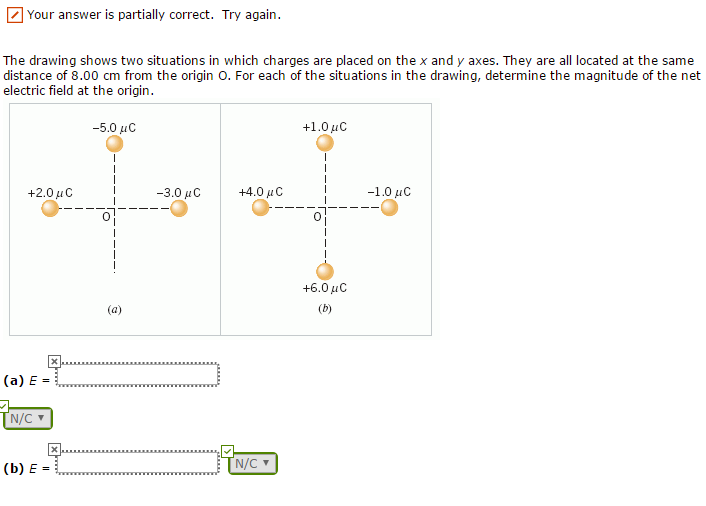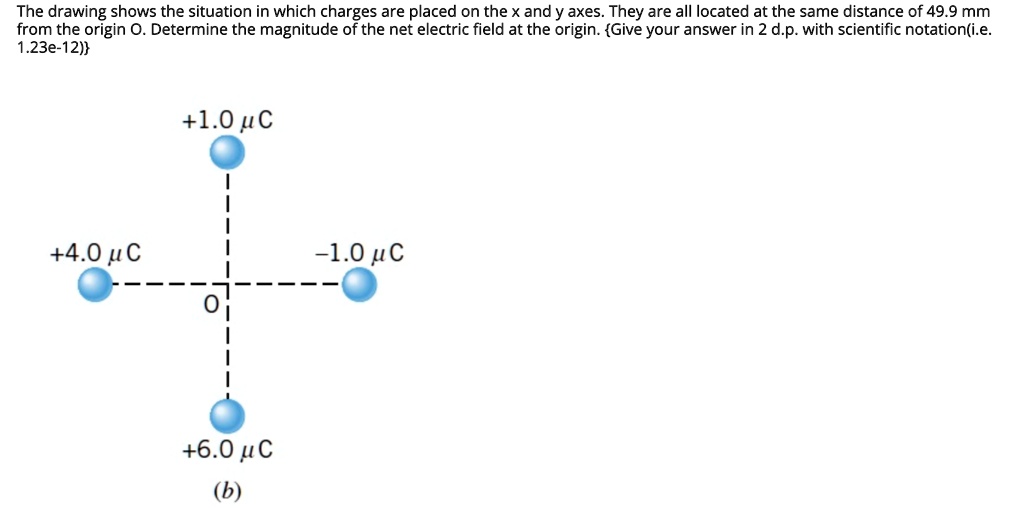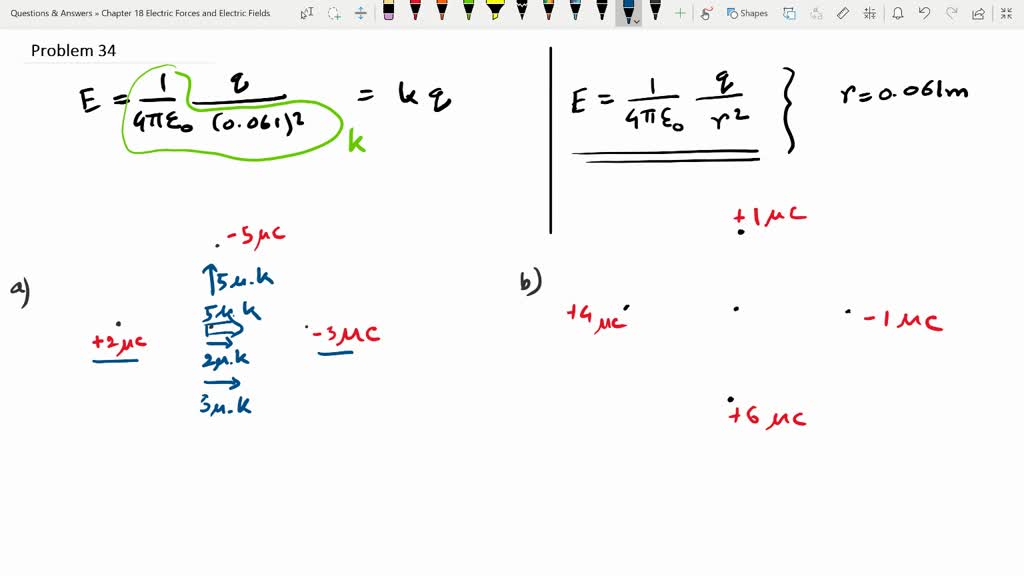The Drawing Shows Two Situations In Which Charges Are Placed
The Drawing Shows Two Situations In Which Charges Are Placed - The spinning ball was given to us here. Web the drawing shows two situations in which charges are placed on the x and y axes. The drawing shows two situations in which charges are placed on the x and y axes. Drawings using lines to represent electric fields around. They are all located at the same distance of 6.1 cm from the origin o. They are all located at the same distance of 5.30 cm from the origin o. Web the drawing shows two situations in which charges are placed on the x x and y y axes. The drawing shows two situations in which charges are placed on the x and y axes. Charges placed in a uniform electric field. Let's say we have a spinning ball with a spelling ball, and the spelling ball starts rotating from rest, and. They are all located at the same distance of 5.80 cm from the origin o. They are all located at the same distance of 7.30 cm from the origin. $@$ the drawing shows two situations in which charges are placed on the $x$ and $y$ axes. They are all located at the same distance of 4.90 cm from the origin. They are all located at the same distance of 8.60 cm from the origin o. They are all located at the same distance of 5.30 cm from the origin o. Web the drawing shows two situations in which charges are placed on the x and y axes. They are all located at the same distance of 4.90 cm from the. Web the drawing shows three point charges fixed in place. They are all located at the same distance of 7.90 cm from the origin o. The charge at the coordinate origin has a value of q1 = +8.00 μc; Let's say we have a spinning ball and a spelling ball, and the spelling ball starts rotating from rest, and the.. Web the drawing shows two situations in which charges are placed on the x and y axes. Web the drawing shows two situations in which charges are placed on the x and y axes. Drawings using lines to represent electric fields around. The charge at the coordinate origin has a value of q1 = +8.00 μc; $@$ the drawing shows. Web the drawing shows three point charges fixed in place. The other two charges have identical magnitudes, but. They are all located at the same distance of 5.30 angstroms from the origin o. They are all located at the same distance of 7.30 cm from the origin. There is a spinning ball here. The drawing shows two situations in which charges are placed on the x and y axes. They are all located at the same distance. Web the drawing shows two situations in which charges are placed on the x and y axes. Web the drawing shows two situations in which charges are placed on the x and y axes. Web the. Web the drawing shows two situations in which charges are placed on the x and y axes. The charge at the coordinate origin has a value of q1 = +8.00 μc; The drawing shows two situations in which charges are placed on the x and y axes. The drawing shows two situations in which charges are placed on the x. Web the drawing shows two situations in which charges are placed on the x and y axes. They are all located at the same distance of 6.1 cm from the origin o. Drawings using lines to represent electric fields around. They are all located at the same distance of 6.1 \mathrm {~cm} 6.1 cm from the origin. The drawing shows. They are all located at the same distance of 5.30 angstroms from the origin o. Web the drawing shows two situations in which charges are placed on the x and y axes. The drawing shows two situations in which charges are placed on the x and y axes. The drawing shows two situations in which charges are placed on the. The drawing shows two situations in which charges are placed on the x and y axes. In this situation, charges are placed in a uniform electric field, which means that the electric field has the same magnitude. Web the drawing shows two situations in which charges are placed on. They are all located at the same distance of 7.20 cm. Web draw the electric field lines between two points of the same charge; Web the drawing shows two situations in which charges are placed on the x and y axes. The other two charges have identical magnitudes, but. The drawing shows two situations in which charges are placed on the x and y axes. Let's say we have a spinning ball with a spelling ball, and the spelling ball starts rotating from rest, and. They are all located at the same distance. Drawings using lines to represent electric fields around. In this situation, charges are placed in a uniform electric field, which means that the electric field has the same magnitude. They are all located at the same distance of 8.20 cm from the. Web the drawing shows two situations in which charges are placed on the x and y axes. Hello to all of you. They are all located at the same distance of 6.1 cm from the origin o. Web the drawing shows two situations in which charges are placed on the x and y axes. They are all located at the same distance of 5.30 cm from the origin o. Web the drawing shows two situations in which charges are placed on the x and y axes. They are all located at the same distance of 5.80 cm from the origin o.
Solved The drawing shows two situations in which charges are
[Solved] The drawing shows two situations in which charges are placed

SOLVED The drawing shows the situation in which charges are placed on
[Solved] The drawing shows two situations in which charges

Your T The drawing shows two situations in which charges are placed on
[Solved] The drawing shows two situations in which charge
Solved The drawing shows two situations in which charges are

Solved The drawing shows two situations in which charges are

⏩SOLVED The drawing shows two situations in which charges are… Numerade
Solved The drawing shows two situations in which charges are
The Charge At The Coordinate Origin Has A Value Of Q1 = +8.00 Μc;
They Are All Located At The Same Distance Of 4.90 Cm From The Origin O.
For Each Of The Situations In The Drawing, Determine The Magnitude Of The Net Electric Field At The.
Charges Placed In A Uniform Electric Field.
Related Post:
![[Solved] The drawing shows two situations in which charges](https://media.cheggcdn.com/study/cd1/cd1176b0-7ad2-485f-9f81-e384bb2bbbfe/image)
![[Solved] The drawing shows two situations in which charge](https://media.cheggcdn.com/media/839/839dc921-34c0-4451-b03c-b7e9e81ca055/phpDmoKb5)

